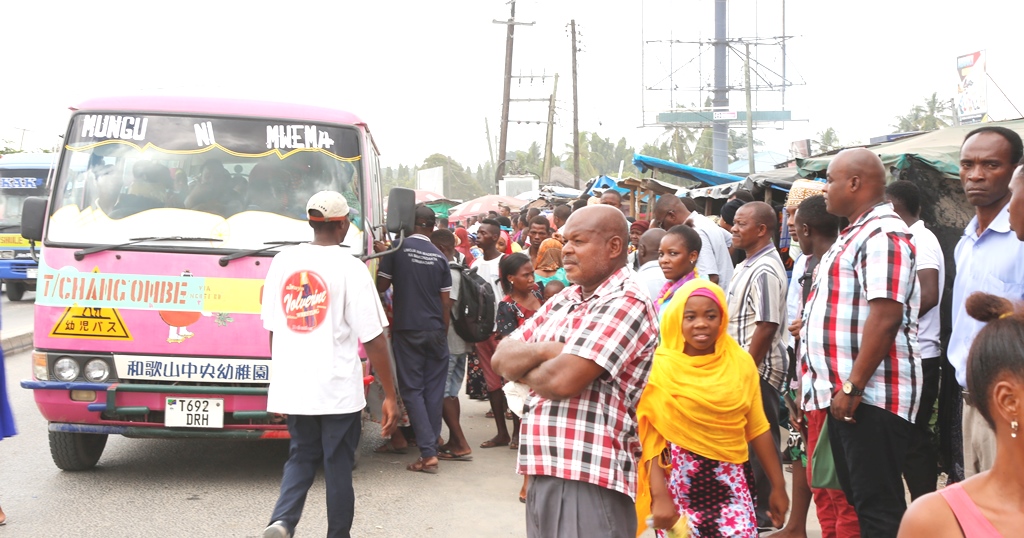AfricaPress-Tanzania: A SECTION of commuters in Dar es Salaam had to endure long-treks on Tuesday after the authorities started enforcing the seating-capacity requirement in passenger vehicles in response to the Covid-19 outbreak.
It was a torrid experience for city commuters who have no option but get on the road every morning in search of their daily bread, as the public transport became a total chaos in some areas of Dar es Salaam.
In highly populated areas such as Mbagala, Kurasini, Chang’ombe, Kigamboni, Gongolamboto and Mbezi, among others, scores of commuters opted to walk towards their destinations, apparently at their workplaces and businesses points.
Some were forced to dig deeper into their pockets to pay for alternative means of transport such as motorcycles and tricycles commonly-known as bodaboda and bajaj respectively.
Police patrol cars were seen roving around the city roads, checking errant passenger bus operators who disobeyed the order.
The commuter buses normally load passengers beyond seating-capacity but the Covid-19 outbreak has compelled authorities to impose restrictions to prevent its spread.
One of commuters residing at Mbagala Rangi Tatu, Mr James Masanja, told this reporter that he was stranded at a bus stop for over two hours waiting for the bus to his workplace.
“It was hard to get a bus since each of the vehicles was already full of its seating capacity,” Mr Masanja lamented, saying he was forced to pay two times normal fare to reach his workplace.
He said many of his fellow commuters who were heading to the city centre from Mbagala had no choice than walking for some kilometres to catch a bus at another point along the Kilwa Road such as Sabasaba area.
At Kigamboni, the situation was even worse not only for commuters but also for commuter buses plying between Ferry and Machinga Complex via Nyerere B ridge.
Some commuter bus drivers appealed to the government to lower tolls, arguing that loading as per seating-capacity while paying 5 0 0 0 / – to cross the B ridge would only see them operate on a loss.
“I think the government should intervene and reduce the fee on buses to cross the B ridge at least during this period of health crisis so that the buses could continue providing services,” Mr Eliya Magori commented.
Another commuter from Gongolamboto, Mr Suleiman Mgaya, said commuter buses were trickily overloading, just to ensure that they still earn more income, something which was putting commuters at risk.
“Now, what the bus operators do is to ask passengers to sit on the bus floor once all the seats are occupied, this could also expose them to other health risks,” he commented.
One of the bus drivers at Mbezi, Mr Salum Kahawala, said he was supporting the government’s fight against the spread of the novel virus by ensuring his vehicle is not overloaded.







